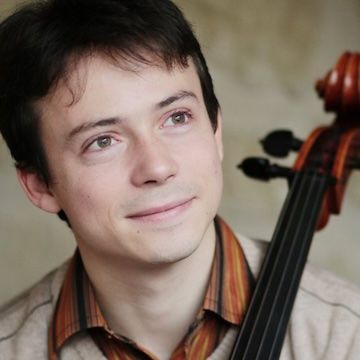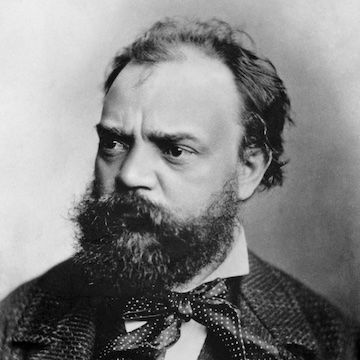Dvořák !
This concert honors Antonín Dvořák (1841–1904), the great Czech composer.
Deeply rooted in the folk traditions of his country, he wrote music that carries within it an almost unsinkable energy, hope, and optimism.
While some of his symphonic works and his cello concerto have become iconic, his piano music, melodies, and chamber music remain relatively unknown.
This concert will showcase the passion, variety, and breadth of Czech musical genius!
Program
Humoresques (Czech: Humoresky), Op. 101 (B. 187), is a piano cycle by the Czech composer Antonín Dvořák, written during the summer of 1894. Music critic David Hurwitz says "the seventh Humoresque is probably the most famous small piano work ever written after Beethoven's Für Elise."[1]
Vivace (E♭ minor)
Poco andante (B major)
Poco andante e molto cantabile (A♭ major)
Poco andante (F major)
Vivace (A minor)
Poco allegretto (B major)
Poco lento e grazioso (G♭ major)
Poco andante — Vivace – Meno mosso, quasi Tempo I (B♭ minor)
The Sonatina in G Major for violin and piano (Czech: Sonatina G dur pro housle a klavír), Op. 100, B. 183, is a work by Antonín Dvořák, written between November 19 and December 3, 1893, in New York. It is the last chamber composition he wrote during his stay in the United States.
Dvořák composed this sonatina based on the instrumental abilities of his own children, in particular those of his 15-year-old daughter Otilie Suková (cs) and his 10-year-old son Toník, who played the piano and violin respectively. In a letter to Fritz Simrock dated January 2, 1894, Dvořák described the piece in the following terms: “It is intended for young people (dedicated to my two children), but even grown-ups, adults, should be able to converse with it...” The sonatina was published by Simrock in Berlin in 1894.
There is also a version for cello and piano.
Allegro risoluto, G major
Larghetto, in G minor
Molto vivace, G major
Allegro, G major
Gypsy Songs, Op. 55 is a collection of seven songs for voice and piano composed in 1880 by Antonín Dvořák, with lyrics by Adolf Heyduck. They were premiered in 1881. Heyduck translated his own Czech poems into German to present them at the Vienna Court Opera, and the same poems were later published in Czech. The set is sometimes referred to by its number in the Burghauser catalog, B. 104.
For several years, Dvořák's publisher, Simrock, urged the composer to write another work of the same kind after his first piano quartet. Completed in just a few weeks in the summer of 1889, the new composition was to fulfill Simrock's wishes: with his Opus 87, Dvořák delivered a demanding work of great maturity, in which a masterful command of form goes hand in hand with lively themes and surprising harmonic twists—so much so that it quickly won the hearts of musicians and listeners alike.
In addition to the first edition, the autograph manuscript and the engraving copy served as sources for the preparation of this critical edition, with which Henle Editions continues the series of Urtext editions of Dvořák.
Allegro con fuoco (E♭ major)
Lento (G♭ major)
Allegro moderato, grazioso (E♭ major) – Un pochettino più mosso (B major)
Finale. Allegro ma non troppo (E♭ minor, ends in E♭ major)





